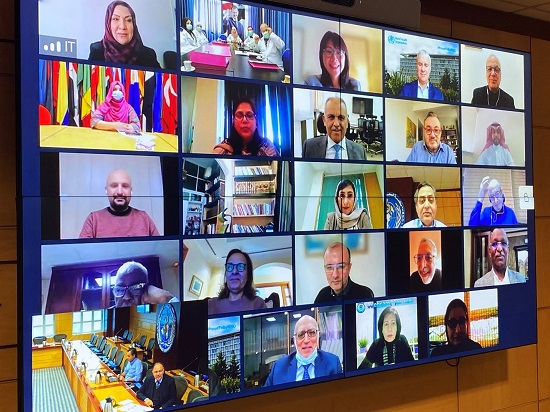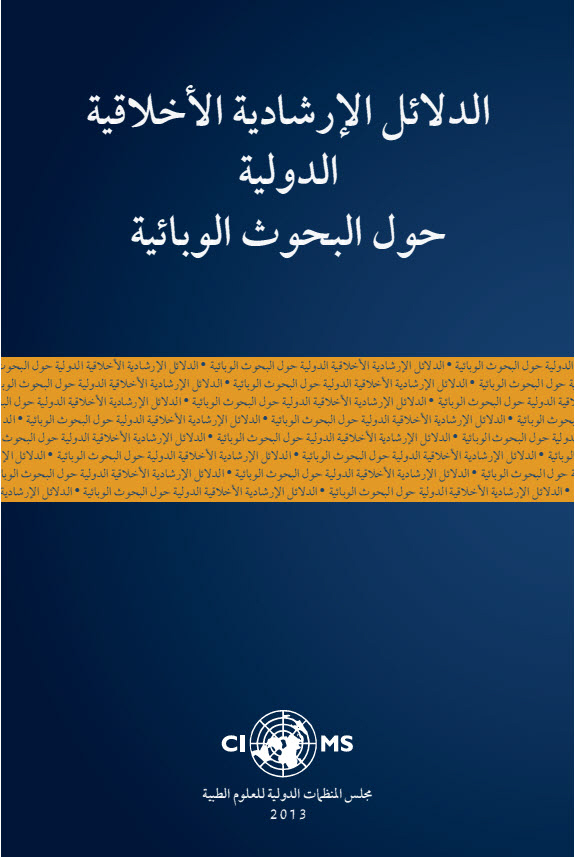
10 January 2022 – The WHO Regional Office and UNESCO/Arab States held a joint webinar on 6 December 2021 to discuss fair, equitable and timely access to COVID-19 vaccines as a global public good, as emphasized by the UNESCO statement on global equity and solidarity and the WHO regional response plan. The webinar also covered current and potential challenges, including intellectual property considerations in rolling out immunization campaigns from an ethical point of view, using both universal principles and value systems that exist in the region.
The webinar was inaugurated by Ms Gabriela Ramos, Assistant Director General for Social and Human Sciences, UNESCO headquarters and Dr Ahmed Al Mandhari, WHO Regional Director for the Eastern Mediterranean and Dr Maha Bekheit, Director, Intellectual Property, League of Arab States.
The plenary and panel sessions covered ethical aspects of COVID-19 vaccination, including: solidarity and capacity-building; data and research; and vaccine roll-out in the region; vaccine hesitancy, community engagement and the social impact of the COVID 19 pandemic. Chairpersons and speakers were invited from WHO, WHO collaborating centres on bioethics, UNESCO and League of Arab States, including chiefs of the International Bioethics Committee and Commission on the Ethics of Scientific Knowledge and Technology (COMEST) and Inserm Ethics Committee, joining from Amman, Beirut, Cairo, Enschede, Geneva, Karachi, Khobar, London, Muscat, Paris, Tehran and Tunis.
The webinar noted that while 8 billion COVID-19 vaccines had been administered, inequalities remained (imbalance of their distribution between high-income countries and low- and middle-income countries. The 600 million doses provided by the COVAX Facility had been insufficient to meet the needs of countriesand there was a need for fairer and more equitable and timely distribution of vaccine doses.





 المبادئ التوجيهية الأخلاقية الدولية للبحوث المتعلقة بالصحة التي تُجرى علي البشر
المبادئ التوجيهية الأخلاقية الدولية للبحوث المتعلقة بالصحة التي تُجرى علي البشر الدلائل الإرشادية الأخلاقية الدولية حول البحوث الوبائية [PDF 758Kb]
الدلائل الإرشادية الأخلاقية الدولية حول البحوث الوبائية [PDF 758Kb] المعايير والإرشادات التشغيلية لمراجعة أخلاقيات البحوث المتعلقة بالصحة والتي يشارك فيها البشر، 2011 [PDF 781.26kb]
المعايير والإرشادات التشغيلية لمراجعة أخلاقيات البحوث المتعلقة بالصحة والتي يشارك فيها البشر، 2011 [PDF 781.26kb] 